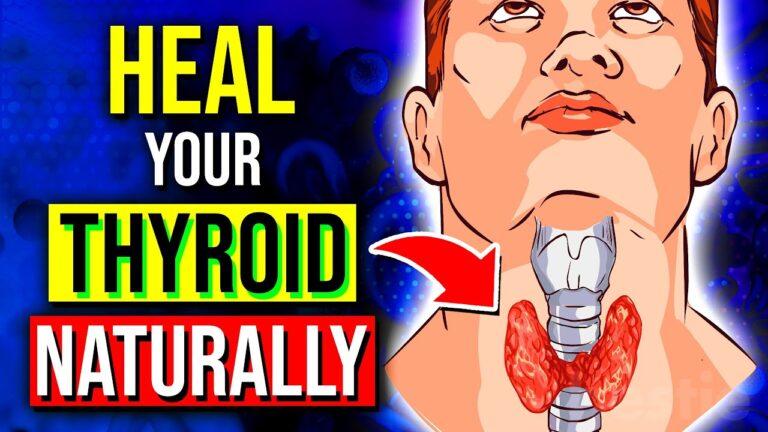Colleen Cutcliffe is an expert in molecular biology and co-founder of Pendulum Therapeutics, a company working to develop treatments for a variety of diseases by targeting the microbiome. In this episode, Colleen delves into the complexity of the microbiome, how it is tested, and how it changes over time. She explores how probiotics, prebiotics, and postbiotics affect the gut and makes a compelling case that well-developed products have the potential not only to enhance gut health but also to positively influence overall metabolic well-being. Colleen emphasizes the significance of a high-fiber diet in sustaining a thriving gut microbiome, shares insights on minimizing microbiome damage during antibiotic use, provides tips for fostering and preserving a healthy gut, and much more. Subscribe on: APPLE PODCASTS | RSS | GOOGLE | OVERCAST | STITCHER We discuss: Colleen’s background and current focus [4:45]; The basics of the microbiome [7:15]; The study of the human microbiome [15:15]; Categories of bacteria, and the implications on health of the rapid evolution of bacteria [19:45]; Methods for measuring and understanding the microbiome, and key indicators of microbiome health [28:30]; The important role of fiber for promoting gut health through the production of butyrate [38:30]; The case for manipulating gut bacteria via fecal microbiota transplant (FMT) [45:00]; Dynamics of the microbiome: the gut-brain connection and how antibiotics, nutrition, stress, and more impact the microbiome’s diversity and function [50:15]; Factors that influence the vaginal microbiome [55:15]; The effect of gut microbes on obesity and challenges with fecal transplants in people [58:45]; Beneficial strains of gut bacteria and strains commonly found in probiotics [1:01:15]; The difference between a probiotic and a prebiotic, and how CFUs are a measure of the “active ingredient” [1:09:45]; Considerations about how probiotic strains are produced, and more on the meaning of CFU [1:14:15]; Mitigating the effect of antibiotics on the microbiome [1:22:30]; What do we know about the effect of artificial sweeteners on the gut microbiome? [1:30:00]; Why Akkermansia is a keystone strain with implications for metabolic health and an individual’s response to dietary interventions [1:36:15]; The essential steps necessary to develop a robust probiotic for optimal health support [1:45:45]; How Akkermansia helps control blood glucose, and potential implications of Akkermansia in weight loss, diabetes management, and more [1:48:45]; Pendulum Therapeutics’ commitment to rigorous product develop [2:06:30]; More details about the probiotic “Glucose Control” and other probiotics developed by Pendulum Therapeutics [2:13:00]; Further studies of Akkermansia that have been proposed or are underway [2:20:30]; and More. Colleen’s background and current focus [4:45] Peter connected with Colleen six months ago They figured out they were both at Hopkins at the same time What did you do your Ph.D. in? Colleen did here Ph.D. in biochemistry and molecular biology, really thinking about enzymes and pathways and how they all interact with each other Then she did a postdoc at Northwestern ‒ we were looking for diagnostic markers for pediatric Wilms’ tumors Next she moved out to the Bay Area and worked in pharma
We were developing drugs for Parkinson’s disease We were developing drugs for Parkinson’s disease She followed a pretty traditional path of a scientist into pharmaceutical drug development Then she did what everybody does in Silicon Valley, she joined a startup company
This was a DNA sequencing instrument company that went through rapid growth, went public This was a DNA sequencing instrument company that went through rapid growth, went public On the other side of that, she started Pendulum Therapeutics It was really premised in the fact that things like probiotics and yogurts have been on the shelves for decades, but there actually hasn’t been a new ingredient introduced in over 50 years
That’s because microbiome science wasn’t a real science until DNA sequencing technology enabled us to really be able to survey the microbiome and create these metabolic maps and start to approach it like a biochemical problem and a systems biology problem That’s because microbiome science wasn’t a real science until DNA sequencing technology enabled us to really be able to survey the microbiome and create these metabolic maps and start to approach it like a biochemical problem and a systems biology problem Advances in DNA sequencing technology allowed the nascent field of the microbiome to produce real products, and that’s what Colleen has been focused on for the last 10 years The basics of the microbiome [7:15] How do we define the microbiome? The microbiome is essentially all of the microbes that reside in and on us: bacteria, viruses, fungi, yeast
They are on our skin, they’re in our nasal passages, they’re in our lungs and they’re in our guts They are on our skin, they’re in our nasal passages, they’re in our lungs and they’re in our guts Our gut runs from mouth to anus and is outside of our body, even though people don’t always think of it that way What allows colonization of the gut? Is that set from birth? For a long time, we all believed that the mother’s womb was an entirely sterile environment and there were no microbes there at all Some recent studies have started to elucidate that there are some strains, but it’s very minimal When we think about the gut microbiome of an adult versus somebody who’s in the womb, it’s incredibly much more diverse once you become an adult The primary initial seeding of the microbiome is through the delivery in the vaginal canal
And so we’re going to get gross for a second Literally as you’re being delivered, you are consuming fecal matter that is in the vaginal canal, and that’s your first seeding of microbes And so we’re going to get gross for a second Literally as you’re being delivered, you are consuming fecal matter that is in the vaginal canal, and that’s your first seeding of microbes Infants have a very small diversity of microbes that are really tied to mother’s breast milk As you start to eat foods and as you start to get exposure of environments, then the diversity of your microbiome starts to really grow and flourish Then at some point during the aging process , the opposite starts happening You start to become less diverse in your microbiome as we age You start to become less diverse in your microbiome as we age You start out almost like a blank slate, you get a lot more diverse, and then as we age, you start to lose that diversity and therefore some key functions in the microbiome When is peak diversity, what decade of life? It varies from person to person, but if you can remember a time where you could eat or drink whatever you wanted to and you didn’t have to worry about it, that would probably be the time
Teenagers Teenagers You hear all of these sort of bumper sticker slogans about the gut biome, “ It outnumbers us 10 to 1 .” Is that true? Those numbers have come into question They’re nice to give people a framework for the fact that you have a ton of microbes in you, and that’s the important part Whether they outnumber 10 to 1 or 2 to 1 is probably not that important “ What is important is that they [microbes] make up a huge portion of your body mass as well as functions, and so it’s an important key part of your health .”‒ Colleen Cutcliffe The idea is there are many cells that are not you between your mouth and your anus as there are you How do they weigh so little relative to the rest of us? {end of show notes preview} Colleen Cutcliffe, Ph.D. Colleen Cutcliffe earned her B.A. in Biochemistry from Wellesley College and Ph.D. in Biochemistry and Microbiology from Johns Hopkins University. She completed her postdoctoral studies at Northwestern’s Children’s Memorial Hospital. She has held senior positions at bioscience and pharmaceutical firms. Dr. Cutcliffe co-founded Pendulum Therapeutics which uses insights into the microbiome to develop health interventions and probiotics. She currently serves as the CEO of Pendulum. [Pendulum]
This content was originally published here.




















